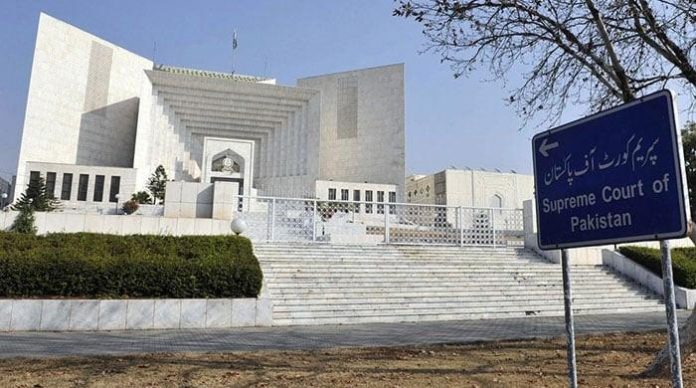Ex-PM Nawaz Sharif and Jahangir Tareen will not get any relief after this judgment; Lawyers ready to challenge many other laws passed by the Shehbaz government
ISLAMABAD: The apex court Friday ruled that the Supreme Court (Review of Judgments and Orders) Act 2023 was unconstitutional, shattering the hopes of ex-PM Nawaz Sharif and Jahangir Tareen who were seeking to challenge their lifetime disqualifications.
Both Nawaz and Tareen were disqualified under Article 62 of the Constitution. Had the verdict today been in favour of the petitions, both leaders would have gotten an opportunity to challenge their disqualifications, keeping in view their political ambitions amid the upcoming general elections in the country following the completion of the tenure of the National Assembly.
A three-member bench of the apex court headed by Chief Justice Umar Ata Bandial and comprising Justice Ijazul Ahsan and Justice Munib Akhtar announced the decision reserved on June 19 after six hearings — from June 7 to June 19 — on multiple petitions challenging the law, enacted in late May.
The CJP today read out the decision in the presence of the AGP, petitioners, and a large number of lawyers.
The Supreme Court Review Act is against the Constitution, CJP Banidal said, adding that the verdict was passed unanimously and a detailed order will be issued later.
The detailed 87-page long order said the Ais “repugnant to and ultra vires the Constitution […] being beyond the legislative competence of the Parliament.”
“It is accordingly struck down as null and void and of no legal effect,” the order mentioned.
Ghulam Mohiuddin, Zaman Khan Vardak, the Jurists Foundation, through its CEO Riaz Hanif Rahi, and the Pakistan Tehreek-e-Insaf (PTI) had challenged the vires of the act.
Attorney General for Pakistan (AGP) Mansoor Usman Awan had — during the hearing of the case — asked the court to dismiss the pleas against the law, explaining that it broadens the court’s jurisdiction and does not curb its powers.
However, PTI lawyer Ali Zafar, on behalf of the party’s Secretary General Omar Ayub, had maintained that a change in the apex’s powers could not be made through legislation alone and required a constitutional amendment.
The review law
The law — passed during the coalition government’s tenure — aims to facilitate and strengthen the Supreme Court in exercising its powers to review its judgments and orders.
The statement of the objects and reasons of the law mentions that it is necessary to ensure fundamental rights to justice by providing for meaningful review of judgements and orders passed by the Supreme Court in the exercise of its original jurisdiction under Article 184.
In case of judgement and orders of the Supreme Court in the exercise of its original jurisdiction (suo motu powers) under Article 184 of the Constitution, the law states that the scope of review on both facts and the law shall be the same as an appeal under Article 185 of the Constitution.
Article 184(3) sets out the apex court’s original jurisdiction and enables it to assume jurisdiction of matters involving a question of “public importance” with reference to the “enforcement of any of the fundamental rights” of the citizens.
Earlier, a bench that had issued the original order heard the review petition, but under the review law, it can no longer do so.
“A review petition shall be heard by a bench larger than the bench which passed the original judgment in order. The review petitioner shall have the right to appoint any advocate of the Supreme Court of his choice for the review petition,” the law states.
It adds that the right to file a review petition shall also be available to an aggrieved person against whom an order was made under clause (3) of Article 184 of the Constitution, prior to the commencement of this act, provided that the review petition “be filed within sixty days of the commencement of this Act.”
“A review petition may be filed within sixty days of the passing of the original order,” it adds.












